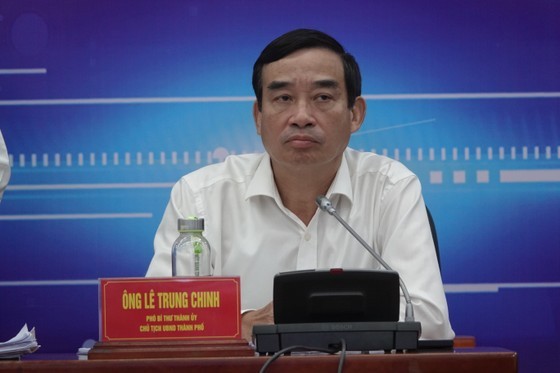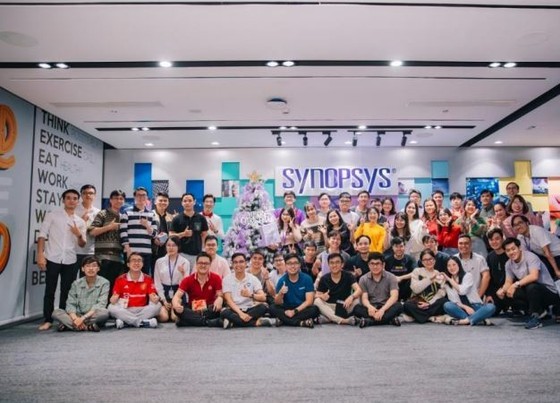 |
Chairman of the Da Nang City People’s Committee Le Trung Chinh (Photo: SGGP) |
In yesterday’s conference ‘Developing the Human Resources for the Semiconductor Industry’, held by the People’s Committee of Da Nang City, its Chairman Le Trung Chinh informed that Da Nang City provides about 750 graduates majoring electronics and semiconductor each year.
The city has introduced various founding mechanisms and policies to serve the semiconductor industry, or in general the IT one, which is considered the breakthrough of the city among the five chosen key industries.
Assoc. Prof. Dr. Tran Xuan Tu from the IT Institute of Vietnam National University – Hanoi commented that Da Nang City has the geographic, political, and climate advantages to easily approach the semiconductor markets in the region as well as the world. “Locating next to China is a benefit, and the strong relationship between Vietnam and the US is another plus for the growth of the semiconductor industry in the country”, said Dr. Tu.
However, the concern lies in the insignificant number of human resources sent to learn abroad and coming back to Vietnam for contribution, not to mention the fact that these people mostly choose HCMC or Hanoi to work, said Rector of the Vietnam – Korea ICT University Huynh Cong Phap. Assoc. Prof. Dr. Nguyen Hong Hai from Da Nang University of Science and Technology attributed this trend to the limited technological infrastructure in many places in Vietnam.
 |
The cooperation with businesses is an advantage of universities |
To develop the high-quality human resources for the semiconductor industry, President of FPT Group’s Director Board Truong Gia Binh proposed collaboration among businesses and educational institutes. “FPT University provides about 6,000 – 7,000 graduates majoring IT per year. For them to work in the semiconductor field, FPT Group can join hands with chip productors like Synopsys to offer distance training in 6 months. These graduates can also be sent to developed nations like the Republic of Korea or Japan to further improve their professional knowledge through work before coming back to Da Nang City for contribution”, said President Binh.
Stressing that developed industrial nations all adopt preferential policies for the semiconductor industry to build the national autonomy ability, CCO of Synopsys – South Asian Branch Dr. Trinh Thanh Lam suggested the cooperation with the Vietnam Bank for Social Policies for training programs. When graduating, these human resources can work in Da Nang City.
In the summary presentation, Secretary of the Da Nang City Party Committee Nguyen Van Quang asked that the municipal People’s Committee submit mechanisms or policies to attract senior experts in the field to the city, to promote the development of the semiconductor industry here via research, to train proper human resources for the design of semiconductor chips, and to add this industry into the list of investment and loan fields of the municipal Development and Investment Fund.
Moreover, the Management Board of the Hi-tech Park and other industrial parks in Da Nang City should review their own planning to attract more human resources in the IC and semiconductor industries. Bonded warehouses should be formed to serve IC packaging and testing businesses.
To be well-prepared for investors in the semiconductor industry, besides the infrastructure of the existing hi-tech park, Da Nang City should train capable human resources and develop suitable mechanisms, policies. These preparations can help the city enter the global semiconductor ecosystem conveniently.
























